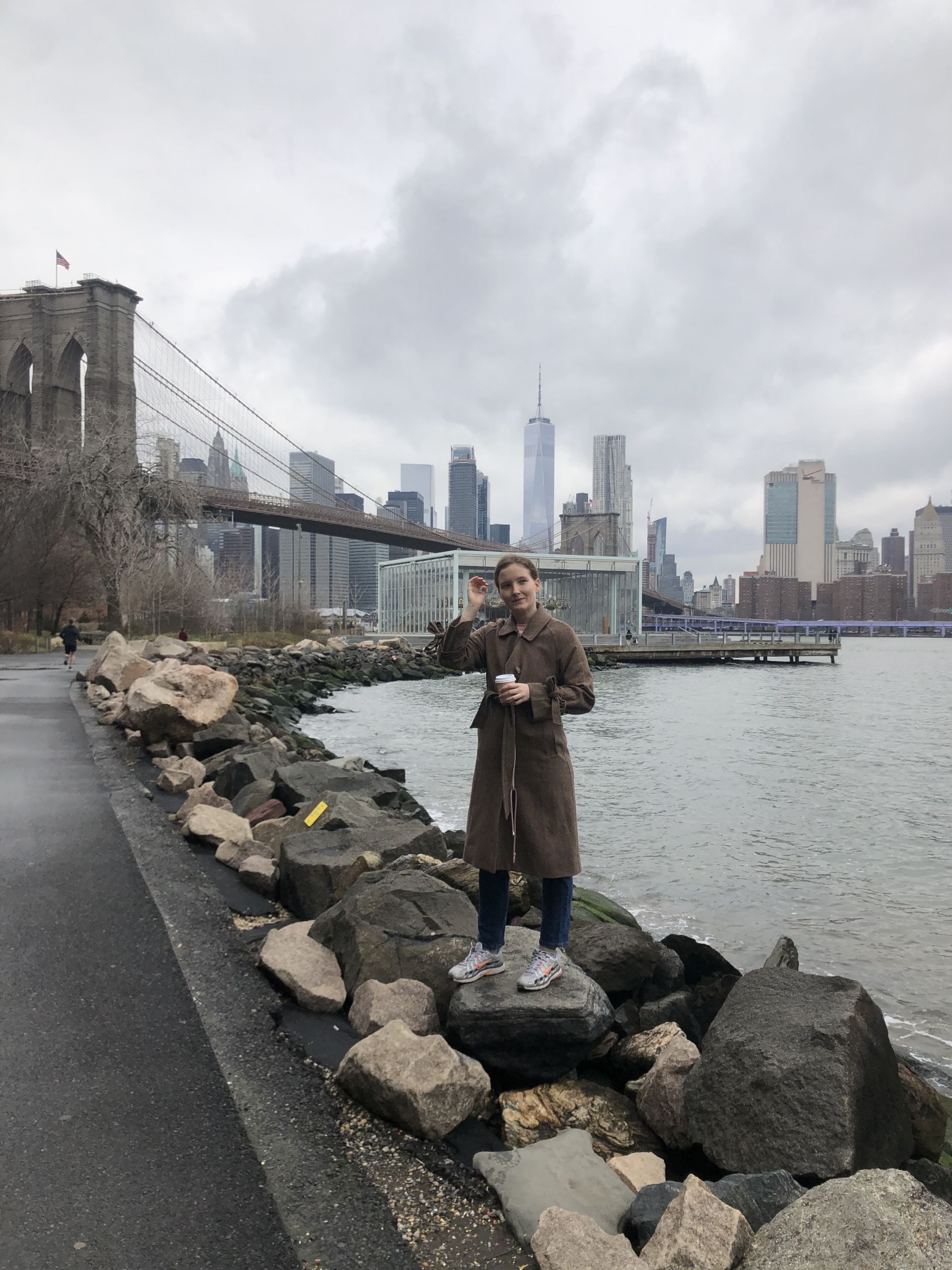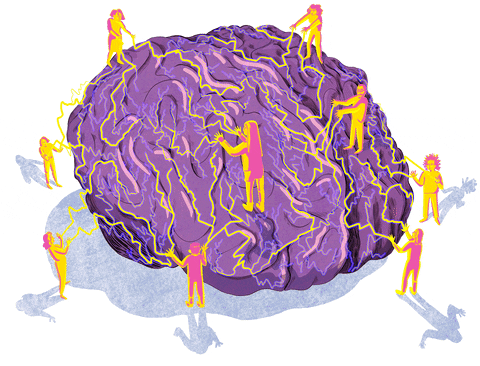Leaving New York: Love beyond borders in the time of coronavirus

(Photo: Caroline Sølver)
I was in a taxi driving to our cafe, Skål, in Brooklyn, when I heard the news that the Danish prime minister was putting Denmark on lockdown. In shock, I called my parents, and although I am 25 years old, the moment I heard my mom’s voice, I broke down in tears.
I was very nervous on their behalf – they assured me that they would be fine, and they would be sheltering in place. Little did I know that this would all hit NYC just two days later.
Next thing we knew, Trump closed the US borders to all Europeans, and Denmark closed its borders to everyone not native to Denmark. I was forced to make a quick decision; stay in the US, not knowing how the corona situation would unfold, or cut my time in NYC short and return to Denmark.
Staying in NYC or heading to Copenhagen?
It was very weird to find myself in NYC, one of the biggest cities in the world, with a pandemic on the rise. It’s crazy how fast our world and everyday life can change.
Needless to say, it felt heartbreaking having to leave my boyfriend behind, not knowing when we’ll be able to see each other again. On the other hand, my parents were nervous and called around to clock to make me get on a plane heading to Denmark. It wasn’t an easy pick-and-choose situation.
The borders of both our countries were literally closed, meaning that we both felt how tricky our relationship is just because we are citizens of two different countries. It was a shitty situation, and it took me a few days of chaos and stress to weigh up my choices and their pros and cons.

Caroline and her boyfriend Jesus in Brooklyn.
My thoughts were:
Pros with staying in NYC – I’ll be with my boyfriend. I might as well be sheltering in place in NYC if I am going to Denmark to do the exact same thing. Also, I’m young and healthy, and not at risk of getting sick and needing extra care – but the “what if” was lurking at the back of my mind.
Cons with staying in NYC – I was scared how the situation in NYC would unfold – I could almost foresee chaos, anarchy, empty supermarkets, guns, crime, citywide looting. Also, what if I got sick and needed help?
After all, I trust the Danish healthcare system more than the American. Another fear was whether the US would close down all air traffic, leaving me stranded. Lastly, the actual Danish authorities were urging traveling Danes to return home, and as a classic Danish believer in authorities, I felt I couldn’t go against this request.
The truth about the US vs. Denmark
As a restaurant owner of , my boyfriend was forced to close the cafe and now serves our meals as takeouts only. Of course, this puts a strain on the business, as the main source of income will be missing but the bills will stay the same. As of now, he doesn’t know if he’ll be able to get any help from the government or from his insurance.
Being a business owner, especially with a restaurant, is extremely tough these days. Leaving NYC felt awful because I also knew I would be leaving him, and he’d have to take care of this on his own.
This situation and my pros/cons caused my boyfriend and I to have deep thoughts about our countries. Luckily, he’s not a Trump supporter. Instead he loves Denmark and our welfare system. This situation made it very clear that I should be grateful I was born in Denmark. It also shed light on what kind of a country the US really is.
One day, we were shopping in Target, and the cashier was in distress. She shared how she’d been fired and was worried how she would feed her three kids at home, who won’t be able to go to school and get their usual lunchtime meal.
In fact, the US, one of the richest countries in the world, held back on closing schools simply because of the fear that kids who are dependent on their daily lunchtime meal, would starve. That shouldn’t be an issue in a first-world country anno 2020!
NYC offers the perfect conditions for a rapid, wide spread of virus
In the news, there were stories about how low-income people couldn’t get tested or were staying away from doctors simply because they weren’t insured or wouldn’t be able to pay for the visit.
Imagine at what speed the virus would spread when people can’t visit their doctors. Then add in that NYC alone has around 70,000 homeless people. With shelters closing because of the virus, this is a ticking bomb. And what about all the thousands of illegal immigrants living and working undocumented in NYC?
Many of them work low-paid service jobs – they will be the first ones to get fired (no tourists means no hotel rooms, which means no work for the maids), and they are not eligible for any sort of government support and they don’t have health insurance.
According to a report by the state of NY from 2017, New York is home to 1.2 million undocumented, illegal immigrants, while the number is 11.1 million people across the US. Another valid point is that NYC is (usually) crowded with tourists from all over the world. Every year, 60 million tourists visit NYC and every day, 3,000 planes land in NYC.
I had a feeling that the spread of COVID-19 would be rapid in NYC. There are perfect conditions here – the density and concentration of people is high with 28,000 residents per square mile (compared to 18,000 in Copenhagen), there is a lack of healthcare and safety, and many people can’t afford to stay home.
The virus spreads through crowded supermarket lines, crowded subways and in tiny apartments filled to the brim. As of today, New York has confirmed more than 21,000 corona cases. Just two weeks ago, there were 36 confirmed cases. You get the picture.
One can only hope that a positive outcome of this pandemic is that more Americans will find out how their system is broken, lacks basic human rights and has a high level of inequality that is not a good thing.
I’m not saying that Denmark is perfect or that no one in Denmark is homeless or poor. But I feel very grateful to be Danish in this situation.
I’m writing this from Copenhagen, as I made it back on a direct flight with SAS. Getting here took blood, sweat and tears, and I miss my boyfriend immensely.
Staying in the US simply felt too risky and foolish. Fingers crossed that this will be over (or at least get better!) very soon, so we will be reunited, people will be able to work again, and we will have the disease under control.
What gives me solace is that we’re all in the same boat. The virus ruins something for all of us, in one way or the other. We’ve all had to cancel our plans. I try to count my blessings; being able to spend quality time with my family.
Being able to work from home. Being healthy. Having FaceTime to communicate with my boyfriend. I also know plenty of CBS students who had to return to their home countries, had their exams cancelled and aren’t too sure about their futures right now.
I hope you can also find solace in remembering that we’re all in the same boat and counting your blessings.
#staythefuckhome #supportlocalbusinesses #supportsmallbusinesses

Saying goodbye… without knowing for how long time.


































































































































Comments